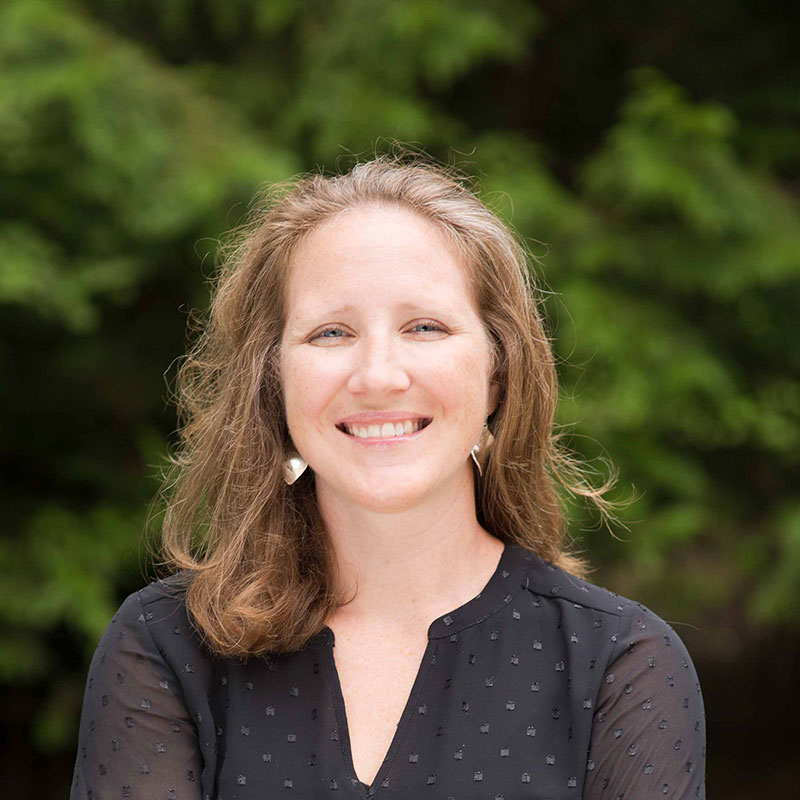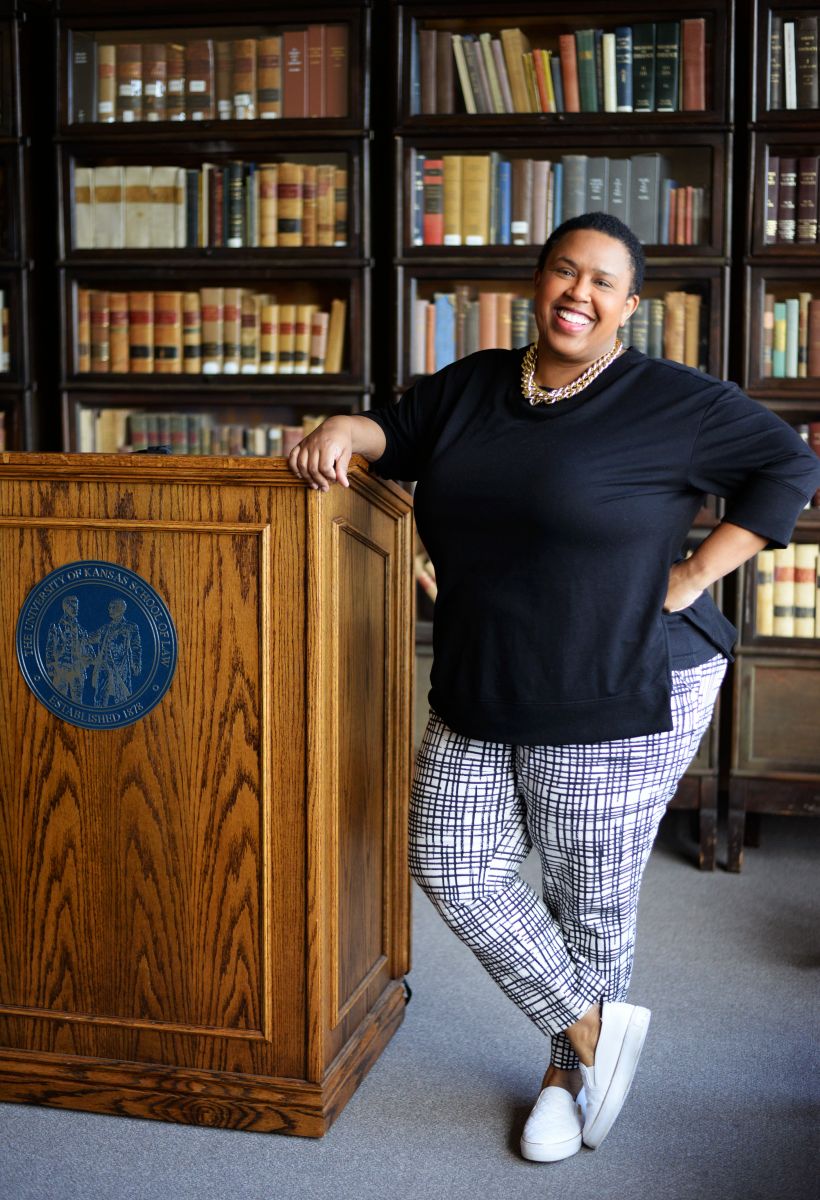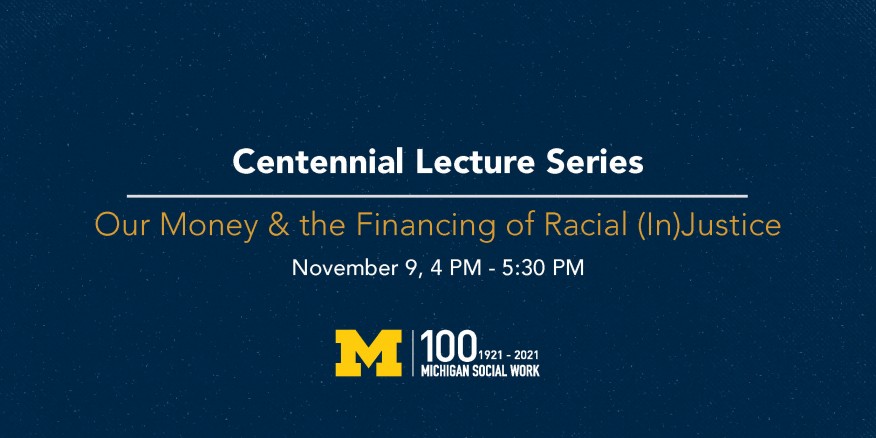Our Money & the Financing of Racial (In)Justice | Centennial Lecture Series
to
We use public money—increasingly in the form of debt—to pay for the services and resources that society needs. Cities and local governments use debt to finance everything from housing and property development, education, and transportation to settling lawsuits in cases of police brutality. Yet the debts that local governments borrow on behalf of their residents have been used to finance racial segregation and White wealth accumulation. Akin to credit scores used by lenders to determine how expensive it is for individual people to borrow money, lenders rate cities with implications for the costs of investing in local communities. For example, when White property is perceived threatened by protests against racial injustice, lenders can ascribe lower ratings to cities and make it more expensive for local governments to finance the services and resources that communities need. These types of financial calculations determine whether and how racialized communities experience marginalization, vulnerability, and abundance.
This panel conversation with Tamara K. Nopper, Destin Jenkins, and Lua Kamál Yuille considers how public money, and debt in particular, is used to finance racial injustice. We also consider how public money can be used to advance racial justice and to invest generously in the services and resources that communities need. Individually and collectively, these scholars’ deep expertise and extensive works offer compelling reasons to understand the relationships between money and racial (in)justice.
Event Recording
Moderator
 Terri Friedline, Associate Professor of Social Work, University of Michigan School of Social Work. Dr. Friedline's research focuses on financial system reform and consumer protections to ensure that people and communities have access to safe and affordable financial products and services. Basic financial products like checking and savings accounts are essential for conducting a wide range of transactions, including securing affordable credit, obtaining auto insurance, and paying bills and utilities. People and communities that cannot access and use basic financial products pay higher costs to participate in today's capitalist economy. It is within this context that Dr. Friedline conducts research to envision, redefine, and move financial and economic justice—particularly with people and communities that have been historically excluded from and marginalized by the financial system. Her most recent research, Mapping Financial Opportunity, investigates the financial system from a macro or structural perspective and the racialized ways that banks, credit unions, and payday lenders invest in communities. Dr. Friedline's research has been published in top journals such as Social Service Review, Social Science Research, and the Journal of Consumer Affairs, and covered by national media including The Washington Post, Huffington Post, Bloomberg Business News, CBS News, and TIME. She conducts this research as an Associate Professor at the University of Michigan School of Social Work, Faculty Director within the Center on Assets, Education, and Inclusion, and Research Fellow at New America in Washington, DC. She holds an MSW and PhD from the University of Pittsburgh School of Social Work. Before entering academia, she worked for several years as a clinical social worker in the juvenile justice system.
Terri Friedline, Associate Professor of Social Work, University of Michigan School of Social Work. Dr. Friedline's research focuses on financial system reform and consumer protections to ensure that people and communities have access to safe and affordable financial products and services. Basic financial products like checking and savings accounts are essential for conducting a wide range of transactions, including securing affordable credit, obtaining auto insurance, and paying bills and utilities. People and communities that cannot access and use basic financial products pay higher costs to participate in today's capitalist economy. It is within this context that Dr. Friedline conducts research to envision, redefine, and move financial and economic justice—particularly with people and communities that have been historically excluded from and marginalized by the financial system. Her most recent research, Mapping Financial Opportunity, investigates the financial system from a macro or structural perspective and the racialized ways that banks, credit unions, and payday lenders invest in communities. Dr. Friedline's research has been published in top journals such as Social Service Review, Social Science Research, and the Journal of Consumer Affairs, and covered by national media including The Washington Post, Huffington Post, Bloomberg Business News, CBS News, and TIME. She conducts this research as an Associate Professor at the University of Michigan School of Social Work, Faculty Director within the Center on Assets, Education, and Inclusion, and Research Fellow at New America in Washington, DC. She holds an MSW and PhD from the University of Pittsburgh School of Social Work. Before entering academia, she worked for several years as a clinical social worker in the juvenile justice system.
Panelists
Tamara K. Nopper is a sociologist, writer, and editor. She is an Associate Professor of Sociology at Rhode Island College, the editor of We Do This ‘Til We Free Us: Abolitionist Organizing and Transforming Justice, a book of Mariame Kaba’s writings and interviews (Haymarket Books), researcher and writer of several data stories for Colin Kaepernick’s Abolition for the People series, and guest editor of the recently published special issue of Critical Sociology, “Race and Money.” She is a Fellow at Data for Progress, an Affiliate of The Center for Critical Race and Digital Studies, a member of the inaugural cohort of the NYU Institute for Public Interest Technology (2021), and a 2021-2022 Faculty Fellow at Data & Society.
 Destin Jenkins is a scholar of racial inequality in America. He is the author of The Bonds of Inequality: Debt and the Making of the American City (Chicago: The University of Chicago Press, 2021) and co-editor of Histories of Racial Capitalism (New York: Columbia University Press, 2021). Prior to joining the faculty at Stanford University, he was the Neubauer Family Assistant Professor of History at the University of Chicago. He has held fellowships at the Charles Warren Center for Studies in American History at Harvard University, and the Robert L. Heilbroner Center for Capitalism Studies at The New School.
Destin Jenkins is a scholar of racial inequality in America. He is the author of The Bonds of Inequality: Debt and the Making of the American City (Chicago: The University of Chicago Press, 2021) and co-editor of Histories of Racial Capitalism (New York: Columbia University Press, 2021). Prior to joining the faculty at Stanford University, he was the Neubauer Family Assistant Professor of History at the University of Chicago. He has held fellowships at the Charles Warren Center for Studies in American History at Harvard University, and the Robert L. Heilbroner Center for Capitalism Studies at The New School. Lua Yuille is a Professor at the Northeastern University School of Law and D’More-McKim School of Business; she is also affiliated with University of Kansas. Her interdisciplinary work connects property theory, heterodox economics, business law, critical pedagogy, and group identity. Professor Yuille’s recent projects include studies of the economics and pedagogy of street gang identity and control mechanisms, corporate personality, and property. Prior to entering academia, she was a socio-economic development lawyer in Latin America and spent nearly a decade at Cleary Gottlieb Steen & Hamilton LLP in New York, where she developed a diverse generalist practice that emphasized Latin American corporate matters and domestic mergers and acquisitions, capital markets, and securities transactions.
Lua Yuille is a Professor at the Northeastern University School of Law and D’More-McKim School of Business; she is also affiliated with University of Kansas. Her interdisciplinary work connects property theory, heterodox economics, business law, critical pedagogy, and group identity. Professor Yuille’s recent projects include studies of the economics and pedagogy of street gang identity and control mechanisms, corporate personality, and property. Prior to entering academia, she was a socio-economic development lawyer in Latin America and spent nearly a decade at Cleary Gottlieb Steen & Hamilton LLP in New York, where she developed a diverse generalist practice that emphasized Latin American corporate matters and domestic mergers and acquisitions, capital markets, and securities transactions.
Event Details
- Online
- 11/9/2021 - 4:00 PM to 5:30 PM
This event has no location.
